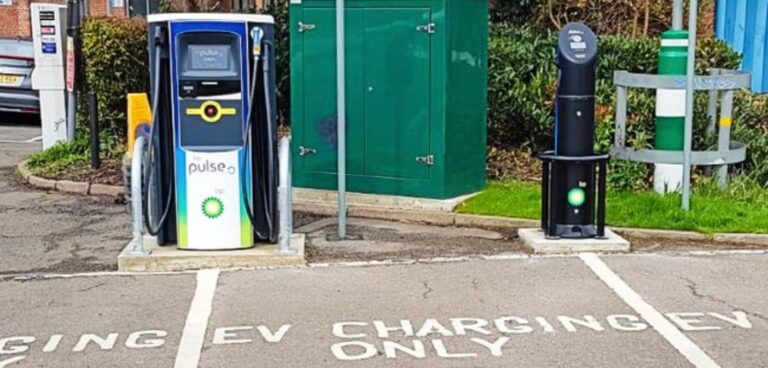Buckinghamshire Council has launched a five-year action plan to support the transition of the county to electric vehicles (EVs).
The plan covers a range of measures, including doubling the number of EV charging parking spaces across Buckinghamshire by 2023/4 and an ambition to have more than 1,000 publicly-available charging spaces across the county by 2027.
The aim is to help to reduce carbon emissions and improve air quality in Buckinghamshire as set out in Buckinghamshire Council’s Climate Change and Air Quality Strategy. The Action Plan will also support the council’s commitment to achieve net zero carbon emissions for Buckinghamshire by 2050.
As transportation currently contributes 51% of carbon emissions in Buckinghamshire, with 65% of these generated by cars, the EV Action Plan aims to ensure there is a spread of EV chargepoints of different types across Buckinghamshire and will also focus on increasing coverage in areas currently without access to a chargepoint.
To achieve this, the council will work with EV chargepoint operators, parish and town councils, and local businesses to encourage the installation of chargepoints. They’ll also seek additional funding for new chargepoints from the Office for Zero Emission Vehicles.
The plan also includes the installation of EV charging points at Buckinghamshire Council offices and depots to support staff to take up EVs and to help transition the council’s fleet to EVs. This has begun, with the council’s Family Support Service installing EV chargepoints for its vehicles in High Wycombe and Aylesbury.
Steven Broadbent, cabinet member for transport, Buckinghamshire Council, said: “Our brand new EV Action Plan aligns with national scale-up plans to reflect predicted increases in EV ownership. This gives us a target for EV infrastructure that is clear, realistic and achievable.
“To keep up with the rapid pace of technology development, the Action Plan includes proposals for trialling innovative chargepoint technologies – including the potential for induction charging and solar canopies – and on-street charging solutions – such as cable channels in pavements – through a comprehensive bid to the government’s Local EV Infrastructure (LEVI) scheme.
“We’re also working with England’s Economic Heartland, distribution network operators (DNOs) and EV chargepoint suppliers to investigate the feasibility of installing rapid and ultra-rapid chargepoint hubs on strategic road links in the county.”
The Action Plan has been developed with advice from the Energy Saving Trust and following feedback from EV users and infrastructure providers.





